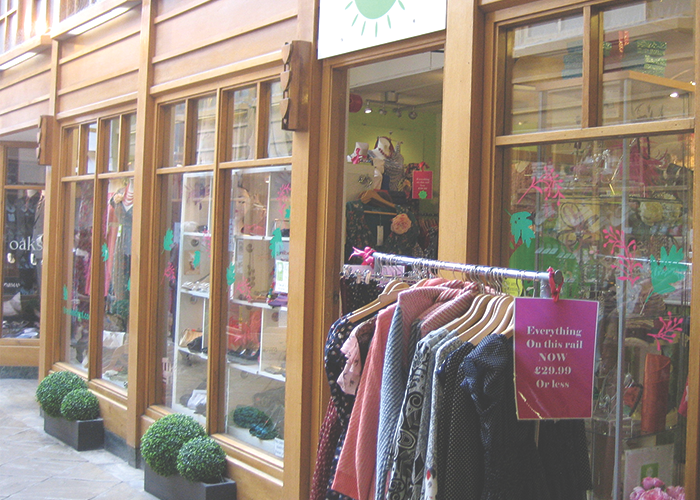What I Learned From Having My Debit Card Stolen (And My Account Drained)
I was sitting at my desk, in cubicle that I shared with four other people, when I logged onto my bank account. Ordinarily, I wouldn’t open my bank information at the office, but I had to check something for an expense report (that I was trying to dispute). I opened my checking account to find 10 days worth of charges at clothing stores in Long Beach. To this day I know three things about Long Beach: it’s where Snoop Dogg is from, I once did a charity walk there, and someone spent $1500 from my checking account in the LBC.
And there’s a catch: I still had my debit card in my possession. Someone had gotten the number, and made a new card. Here are seven lessons I learned when my debit card was stolen, and I didn’t realize it until my account was drained:
1. You need to check your bank account just to check it
I always sign on to my bank account when there’s a reason, but never “just to check.” I log on to verify that my check has cleared, when looking for my old payments to make sure my Internet company isn’t overcharging me (they are, by the way), and to check on my balance when rent payments are coming up. But I never just sign on to ensure that I haven’t, well, been robbed.
2. You should have a list of which payments are linked to which cards
I wrongly assumed that because I had only two cards (credit and debit), I wasn’t going to get confused about what card my water bill was attached to, versus which card was linked to my Netflix account. However, I have two late fees from my Internet company that prove I am not quite as good as I think I am. My solution is to keep a list on my computer of which expenses are tied to which accounts.
3. Keep emergency cash on you, or in a safe place at home
Maybe this is a generational thing, or maybe it’s my own stupidity, but I rarely carry cash. I find it’s easier to track my spending if I purchase everything on a debit card. But, that means when I don’t have my debit card on hand, or if it gets canceled for two weeks, I don’t have any cash on me. (It also means I miss out on a lot of good cash-only foods.) Solution: keep a $20 in your wallet, maybe in the change pouch so you’re encouraged not to use it, and make sure it stays there. I also stash an extra $20 in my room.
4. Use your credit card for online purchases (and gas), when you can
My debit card number wasn’t actually stolen from an online portal, which my bank confirmed because I’m honestly just not an online shopper. They think it’s fairly likely that the card number was taken when I swiped it at a gas station (at the pump), but that’s speculation. My point here is, when you’re buying online, or even completing a transaction at a shared portal where you buy your metro card, I think using a credit card is the way to go. I’m not an expert, but I have been told directly by my bank that it’s better to have your credit card number stolen, because it’s easier to protect, rather than your debit card, which links directly to your cash.
5. Don’t ever use your checking account as a savings account
When my debit card was stolen, there was about $1500 in my account, and by the time I noticed the increased activity, that was almost completely wiped out. I hadn’t paid rent yet for the month, so I had to float myself the money from my savings, before the bank refund came through. However, I’m lucky that I’d already put some money into my savings, from my most recent paycheck. I didn’t have automatic transfer set up (I still don’t, because now I’m freelance and my income fluctuates), but to make up for it, I’m diligent about transferring as much as I can into my savings every month. (Which in this case, spared me from getting that extra money stolen, so I could use it immediately for rent.)
6. As much as I hate to admit it, I was thankful to be part of a big, corporate bank
I have more complaints than I can count about my corporate bank. But when I called frantically, both during business hours, and at 10 p.m., there was someone around to talk me through what I needed to do, and they were able to refund the disputed charges surprisingly quickly. I understand that this isn’t everyone’s experience with big banks, but in this instance, the ease the bank provided was actually a saving grace.
7. Work and real life don’t stop when there’s a problem, so you need to be good at multitasking
The working world doesn’t stop for you to pay your bills, or for emergencies, or even for you to call your landlord about a leaky faucet. This is something I’ve been slowly growing accustomed to for the past couple years, and I still struggle to schedule my day so that I can pay my health insurance bill, refer to my budgeting spreadsheet, and still hit my deadlines. When I found my debit card had been stolen, I was on the phone with the bank for 90 minutes disputing charges, while I was supposed to be in two different meetings. Some employers are understanding, but it’s generally on you to find those nonexistent hours in the work day, and use them to deal with life in general, and things like stolen debit cards.
Maya Kachroo-Levine is a writer and editorial assistant at The Financial Diet. Send her an email at maya@thefinancialdiet.com or follow her on Twitter.
Image via Flickr


